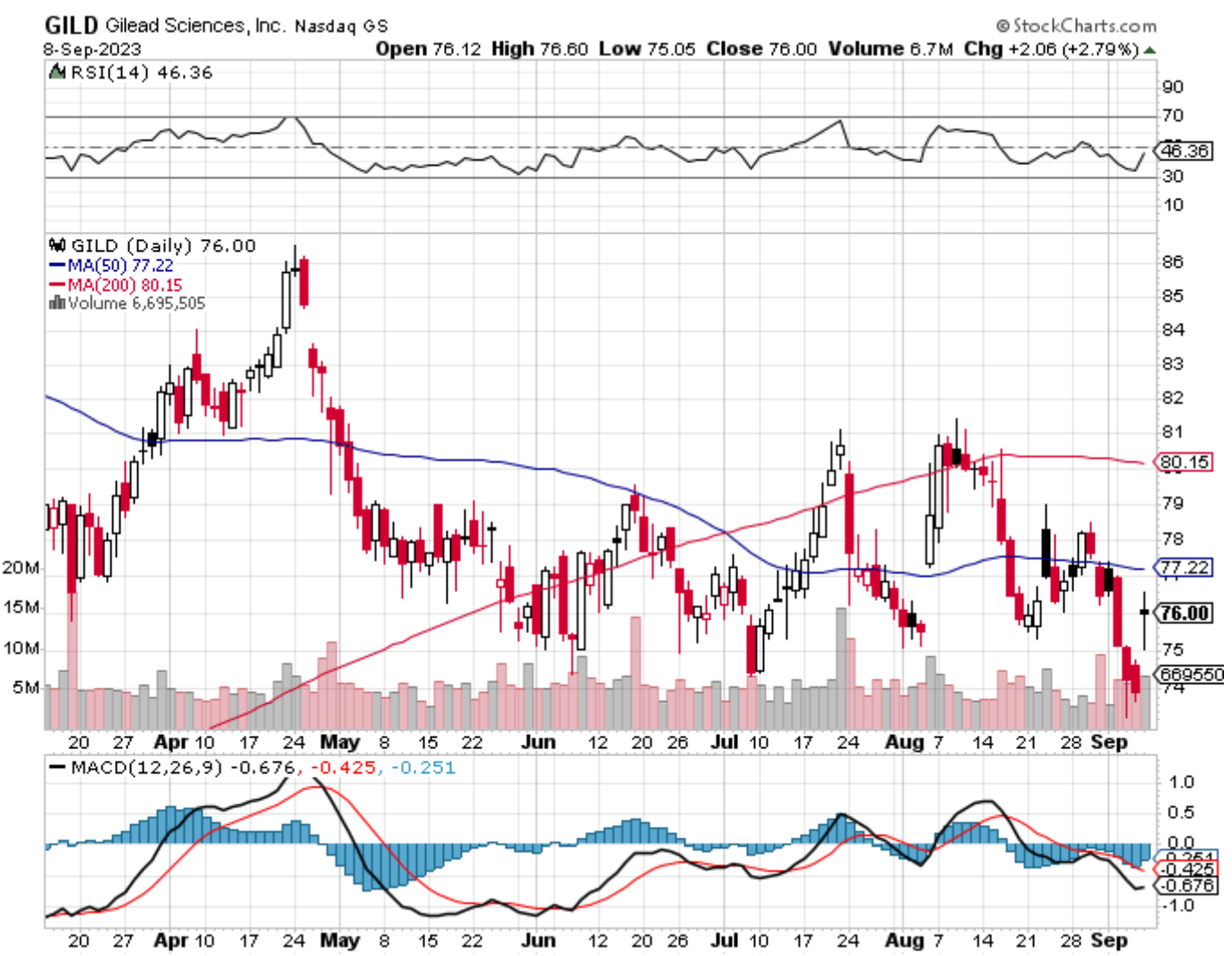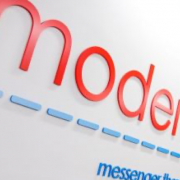A Star Performer in the Biotech Universe
In the ever-evolving world of biotechnology, only a few names consistently stand out.
For years, Gilead Sciences (GILD) has stood out as more than just another player; it has consistently taken center stage as a star performer. This distinction is not based on superficial glitz but on Gilead's profound impact on the healthcare industry, particularly within the competitive HIV drug marketplace.
Biktarvy, Descovy for PrEP, and Sunlenca are more than mere pharmaceutical labels. Each represents a breakthrough, a monumental feat in a domain where every scientific discovery is not just valuable but potentially transformative. These aren't just drugs; they're the culmination of relentless research, dedication, and innovation.
Yet, even stars face challenges.
The recent pandemic cast an unexpected shadow over Gilead's illustrious record. The fallout? A notable drop in HIV diagnoses and prescriptions. While many companies might buckle under such pressure, Gilead's history tells a story of resilience and adaptability.
True to form, Gilead rose from the pandemic's challenges, focusing on an area of vast potential: oncology. Though the oncology division currently represents only a fraction of its total revenue, the rate at which it’s growing is astounding. In fact, its current pace outpaces most other sectors in Gilead's portfolio.
But let's step back for a moment and consider the broader picture.
Gilead is more than its product lineup. It's an embodiment of innovation. With a portfolio boasting over 60 active research programs, Gilead is a veritable treasure trove for investors hungry for dividends.
The numbers speak for themselves: a 31.6% dividend growth over the last five years, punctuated by an impressive 3.84% yield. For investors, this isn’t just a statistic; it's a promise of consistent returns.
The story of "Veklury" (remdesivir) is particularly noteworthy, providing a glimpse into Gilead’s financial agility and foresight. Introduced as a beacon of hope in the fight against COVID-19, Veklury saw sales soar to unprecedented heights.
When market murmurs hinted at a potential sales slump for the drug, Gilead pivoted, securing FDA approval to expand Veklury's application to a broader range of liver conditions. Consider the magnitude of this move: over 100 million Americans are grappling with liver diseases.
With this demographic being particularly susceptible to COVID-19, the market potential for Veklury is undeniable. However, the narrative of global health is as fluid as it is unpredictable. While COVID-19 might not dominate every headline as it once did, its presence is still felt worldwide. A recent surge in hospitalizations in the U.S. is a stark reminder of the virus's lingering threat.
Now, if we dive deeper into the financial intricacies of Gilead over the past five years, a pattern of resilience emerges.
The company boasts a 22.9% growth in revenue, accompanied by a 12.8% increase in free cash flow. And while Veklury’s contributions are significant, removing its influence paints a broader picture of a firm that’s consistently navigated both favorable winds and stormy seas.
Their adaptability shines through in the numbers. Gilead's oncology segment saw a remarkable 38% YoY growth in Q2 2023, generating $728 million in revenue. If these figures are any indicator of the future, the oncology division may soon be a powerhouse in Gilead’s financial framework, potentially contributing up to $10 billion.
Pivotal to Gilead’s revenue story are Biktarvy and Descovy. Their H1 2023 sales figures stand at $5.65 billion and $965 million, respectively. Predicting stratospheric growth rates might be ambitious, but data suggests that steady, upward progress isn’t just probable—it's expected.
The stock market is known for its whims, but seasoned analysts believe Gilead might currently be undervalued. The biotech industry is a roller-coaster, full of unexpected turns, but with Gilead at the helm, the ride promises to be exhilarating.


